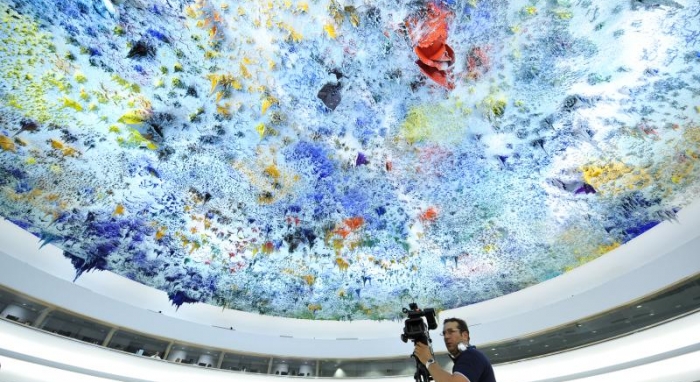
HRC40 | States silent as UN experts sound the alarm on reprisals
ISHR and Amnesty International have called on the Human Rights Council President to push for responses where States have failed to reply to UN experts' requests for information on alleged human rights violations, including reprisals.
In two statements delivered to the 40th Session of the Human Rights Council, ISHR and Amnesty International reacted to the latest Joint Communications Report of the UN Special Procedures – independent human rights experts, appointed to monitor and report on human rights violations and to advise and assist in promoting and protecting rights. The report cites nine cases of reprisals against human rights defenders cooperating with the UN, and reveals that 95 states have not responded to letters from the UN experts concerning human rights violations.
As Helen Nolan of ISHR explains, 35 States have failed to respond to two or more of these letters. 13 of these nations are members of the Council.
‘Repeat offenders are a particular concern,’ says Nolan. ‘India has failed to reply to a staggering 8 communications, Mexico 6, Italy 5, and Bangladesh and Nepal 4 each.’
The first statement by ISHR and Amnesty International identifies the remaining Council members who failed to reply: Brazil, China, Egypt, Hungary, Peru, Philippines, Saudi Arabia and Ukraine[1].
Nolan emphasises that a failure to reply is a failure to cooperate, and welcomes the fact that the recently published report of the Annual Meeting of Special Procedures focuses on non-cooperation, including ‘more subtle forms’, such as selective cooperation with particular mandates.
‘To encourage cooperation, the Council must make non-cooperation more costly,’ says Nolan. ‘We urge the President of the Council to work closely with the Coordinating Committee of the Special Procedures to find ways to do this,’ adds Nolan.
ISHR and Amnesty International’s second statement noted that under GA Resolution 60/251, Council members must ‘fully cooperate with the Council.’ Yet, the report cites nine cases of reprisals involving these members:
- China sought to revoke the Society for Threatened Peoples’ ECOSOC status after vexatiously alleging that a person accredited by them, Dolkun Isa, participated in incitement and funding of separatism and terrorism, in retaliation for cooperation with the UN;
- Egypt carried out forced evictions, and violations of the rights to physical integrity, liberty and security against individuals who cooperated with the Special Rapporteur on the right to adequate housing during her recent visit;
- Iraq carried out unlawful arrest, enforced disappearance and torture against Imad Al Tamimi and intimidated and threatened Israa Al Dujaili for cooperating with the UN;
- Libya arrested an individual in retaliation for taking steps to clarify the fate and whereabouts of his father, including with UN mechanisms;
- The Philippines labeled defenders “terrorists” in reprisal for their engagement with the UN;
- Russia surveilled, intimidated and harassed Yana Tannagasheva and her husband, for speaking out about impacts of coal mining on indigenous people in Siberia and in possible reprisal for their communication with UN mechanisms;
- Turkmenistan carried out reprisals against a defender and her husband for her cooperation with the UN; and
- In Yemen, forces loyal to President Hadi and the Saudi-led coalition detained human rights defenders Radhya Al-Mutawakel and Abdulrasheed Al-Faqih for cooperating with the UN.
ISHR’s Madeleine Sinclair emphasises that human rights defenders must be able to access and communicate with the UN freely and safely.
‘This safety is essential to the crucial work of the UN – so that the UN can monitor countries’ compliance with human rights obligations and protect victims from abuse,’ says Sinclair.
‘We call on the President of the Council to request updates on the cases from Iraq, Libya, Russia, Turkmenistan and Yemen, as there has been no response from the States concerned,’ said Nolan.
Full text of the first statement (on failure to reply) available here.
Full text of the second statement (on cases of reprisals) available here.
Watch the videos of the statements here:
[1] Ukraine informed that an additional response had been submitted. Formal confirmation has however not been received at the time of delivery.
Photo credit: UN Photo/Jean-Marc Ferré
